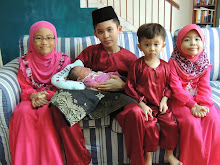by Julia Gabriel
Does your child look forward to a special time when you read to him? Does he enjoy books and stories that you share, and talk about, together?
Nurturing positive reading habits in young children helps make them readers for life. When we start reading to children in the first six months of life, they begin to recognize everyday objects in books and anticipate sounds in rhymes. Snuggled up with Mum or Dad they enjoy listening to the rhythm of words and familiar phrases. By the time they are two, toddlers realize that books contain ideas and stories that are read to them by caring adults. Soon they'll start to ‘read' them to their toys. Even though they can't, yet, decipher the letters, children mimic adult behaviour, believing they are reading. Motivated three and four year-olds ask questions about words and letters because they love books. They're getting ready to take off into independent reading.
Children who are brought up on a healthy diet of books, shared with a caring adult, want to master the skills they need to decode letters into sounds and words. Research shows that when we read, and talk, to children they learn to read naturally, because they want to. And it all starts with sharing books with babies!
So, how do we help our children develop the reading habit?
* Sharing Books with Toddlers
Reading to children as early as possible enhances all the skills and perceptions they need for independent reading, so make time daily to enjoy a book together. Don't worry if your toddler's attention is short. Let him lift the flaps in pop up books, enjoy feeling the shape of cut-outs, and responding to colours in books. Let your child be your guide to what holds his attention, for as long as it lasts!
* Talking about Picture Books
Choose books with illustrations that add an extra dimension to the story for your three, four or five year-old. Stop and talk about what's happening in the pictures, predict what might happen next and discuss the characters in the story, making connections to your own life. Engaging with the story helps children develop the basic building blocks for comprehension and reading motivation: imagination, understanding and language appreciation.
* Talking…just talking
Speech is the strongest bridge to reading for children of all ages. Conversation immerses children in meaningful language. Before children read independently they must know the sounds, words, meanings and syntax of language. The more they know, the easier it is to connect knowledge in oral language to the decoding process required for written language. Talking needs no special time or equipment. Anytime, any place is good.
* Responding to Books
Books for pre-schoolers must be linked to fun and play rather than work and difficulty. They shouldn't only make appearances at reading time, but be generally available at home, within easy reach. Its fun to follow children's leads in exploring books imaginatively: Play games based on books, dressing- up as favourite characters from a book, creating meals that book characters might enjoy, drawing places and situations from favourite stories.
* Rhythms and Rhymes in Poetry Books
Every home needs a good poetry book; a collection of rhymes, songs, poems and finger play games for children to enjoy with Mum or Dad. From just one year old, children respond vocally and physically to the sounds of language in poetry.
Sorry For The Long Hiatus
-
Dearest lovely ladies, thank you so much for your generous prayers and best
wishes. I truly appreciate each one of you. Please do kindly make sure to
take ...
3 years ago













0 comments:
Post a Comment